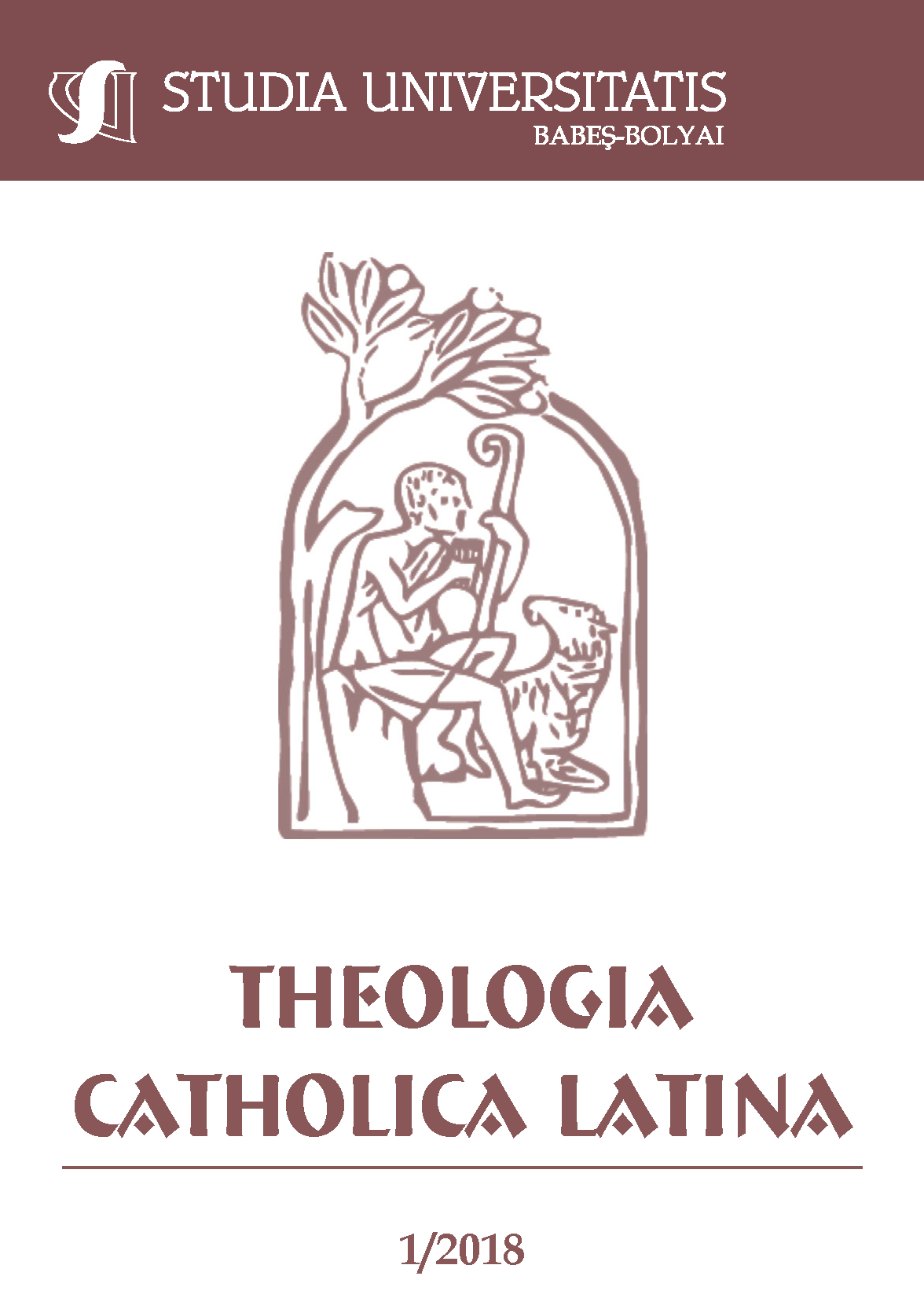THE CHRISTIAN CONCEPT OF THE HUMAN NATURE IN THE FACE OF FRIEDRICH NIETZSCHE’S ATHEISM – BERNHARD WELTE ON “THE DEATH OF GOD” AND “ÜBERMENSCH”
DOI:
https://doi.org/10.24193/theol.cath.latina.2018.LXIII.1.02Keywords:
death of God, Übermensch, human nature, man created in the image of God, christianity, grace, willpower, actual and desired human existenceAbstract
The most widely known sentence in The Gay Science is ”God is dead.” Nietzsche himself is fully aware that with the disappearance of God, all human ideas and acts lose their foundations, and what was formerly built upon God as a basis, suddenly loses its footing, and floats in the endless nothing. The rejection of the Christianity, is the moment for Nietzsche when man re-gains his free will and abandons all limiting powers over his all-surpassing self, and starts his journey to the new quality of becoming Übermensch. The willpower, the will to existence and the will to power play central roles in the birth of the Übermensch. Bernhard Welte reminds us that man’s desire to exist is an a priori that Christian anthropology also finds important. Man is created in the image and likeness of God, and carries on himself the shine of the face of God. Our want of existence is indeed an a priori of our selves, it is indeed the dynamism which is the source of all our specific willful actions, then this will is, in the interpretation of Christian anthropology, a will to bring us closer to God. Man wants to be God somehow, moves towards a divine existence. Consequently, atheism is a human capability and opportunity possibly derived from the innermost essence of the human race. There is a divine element in every human being, that is why man wants to become god, and that is why man makes himself godless when, in his rebellion, he rejects God.
Is it really possible that the most extreme atheism is fed by man’s divine origin and roots? Bernhard Welte provides an explanation through the dialectics of the original, essential structure of human existence - this explanation is presented in the following paper.
References
Biczó G., A tragédia délelőttje – az ifjú Nietzsche filozófiai perspektivizmusa, [The Morning of Tragedy–Philosophical Perspectivism of the Young N) Osiris, Budapest 2000, 97-98.
Biser, E., Gott ist tot. Nietzsches Destruktion des christlichen Bewusstseins, München 1962.
Biser, E., Nietzsche – Zerstörer oder Erneuerer des Christentums, Darmstadt 2002.
Hölderlin, F., Brot und Wein, Sämtliche Werke, Gedichte nach 1800, 90-95.
Diogenes, Laertius, Lives and Opinions of Eminent Philosophers. English transl.: Robert Drew Hicks. https://en.wikisource.org/wiki/Lives_of_the_Eminent_Philosophers/Book_VI#Diogenes. accessed on 1 November 2017
Dürrenmatt, F., The Physicists. Transl. James Kirkup.
Fischer, N., A filozófusok istenkeresése, (Die philosophische Frage nach Gott. Ein Gang durch ihre Stationen 1995., transl.: T. Kaposi; quotations from sources originally in Hungarian translated by the author of this essay) Agapé 2001.
Frosini, G., John Henry Newman. Una biografia teologica, Edizioni Dehoniane Bologna 2014.
Kiss, E., Friedrich Nietzsche filozófiája. Kritikai pozitivizmus és az értékek átértékelése [F. N’s Philosophy. Critical Positivism and the Re-Valuation of Values] Gondolat, Budapest 1993.
Nietzsche, F., The Gay Science. 2001. Cambridge Texts in the History of Philosophy. (ed. Bernard Williams, transl. Josefine Nauckhoff), Cambridge University Press.
Nietzsche, F., Thus Spoke Zarathustra. 2016. Transl. Thomas Common. Project Gutenberg e-book.
Pascal, B., Gondolatok [Thoughts].
Puskás A., A kegyelem teológiája, [The Theology of Grace] SZIT 2007.
Stone, A., Existentialism, in The Oxford Handbook of Atheism, (ed. by Bullivant, S. – Ruse, M.), Oxford University Press, 2013, 278-292.
Széll, Zs., Bevezetés, in Nietzsche, F., Válogatott írások, [Introduction to N’s Selected Works] (transl.: E. Szabó) Gondolat, Budapest 21984.
Vincze, K., Antropológia és krisztológia összekapcsolódása Bernhard Welte gondolkodásában, [The Link between Anthropology and Christology in B. Welte’s Ideas] in Athanasiana (41) 2015, 66-79.
Vincze, K., Praeambula fidei a fenomenológia nyomán – Bernhard Welte vallásfilozófiájának központi gondolatai, [Praeambula fidei, following on phenomenology - the central ideas in Bernhard Welte’s philosophy of religion] in Teológia 48 (3-4) 2014, 206-215.
Welte, B., Nietzsches Atheismus und das Christentum, in Welte, B., Denken in Begegnung mit den Denkern II, Hegel – Nietzsche – Heidegger, in Gesammelte Schriften II/2, Herder, Freiburg im Breisgau 2007.
Downloads
Published
How to Cite
Issue
Section
License
Copyright (c) 2018 Studia Universitatis Babeș-Bolyai Theologia Catholica Latina

This work is licensed under a Creative Commons Attribution-NonCommercial-NoDerivatives 4.0 International License.



